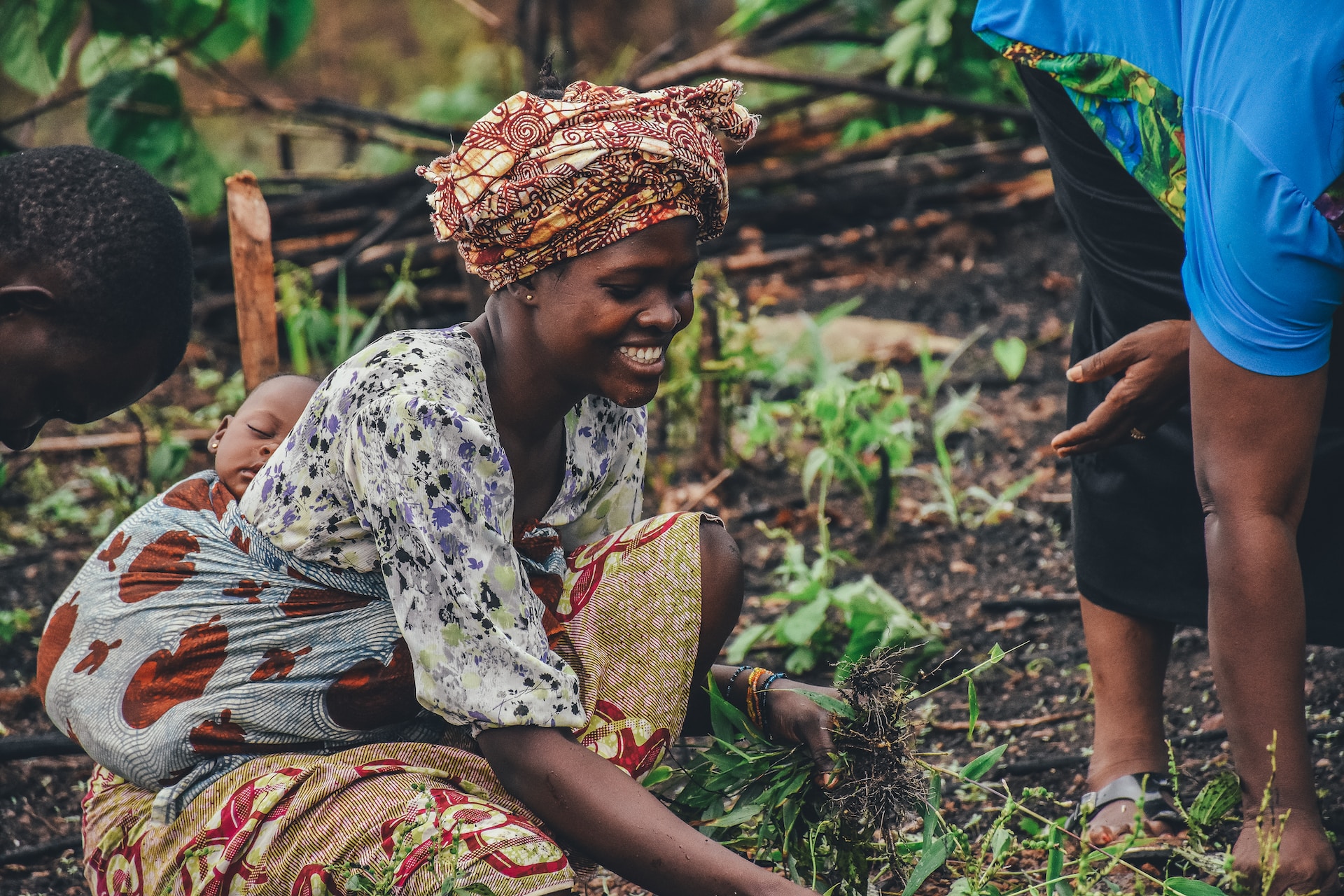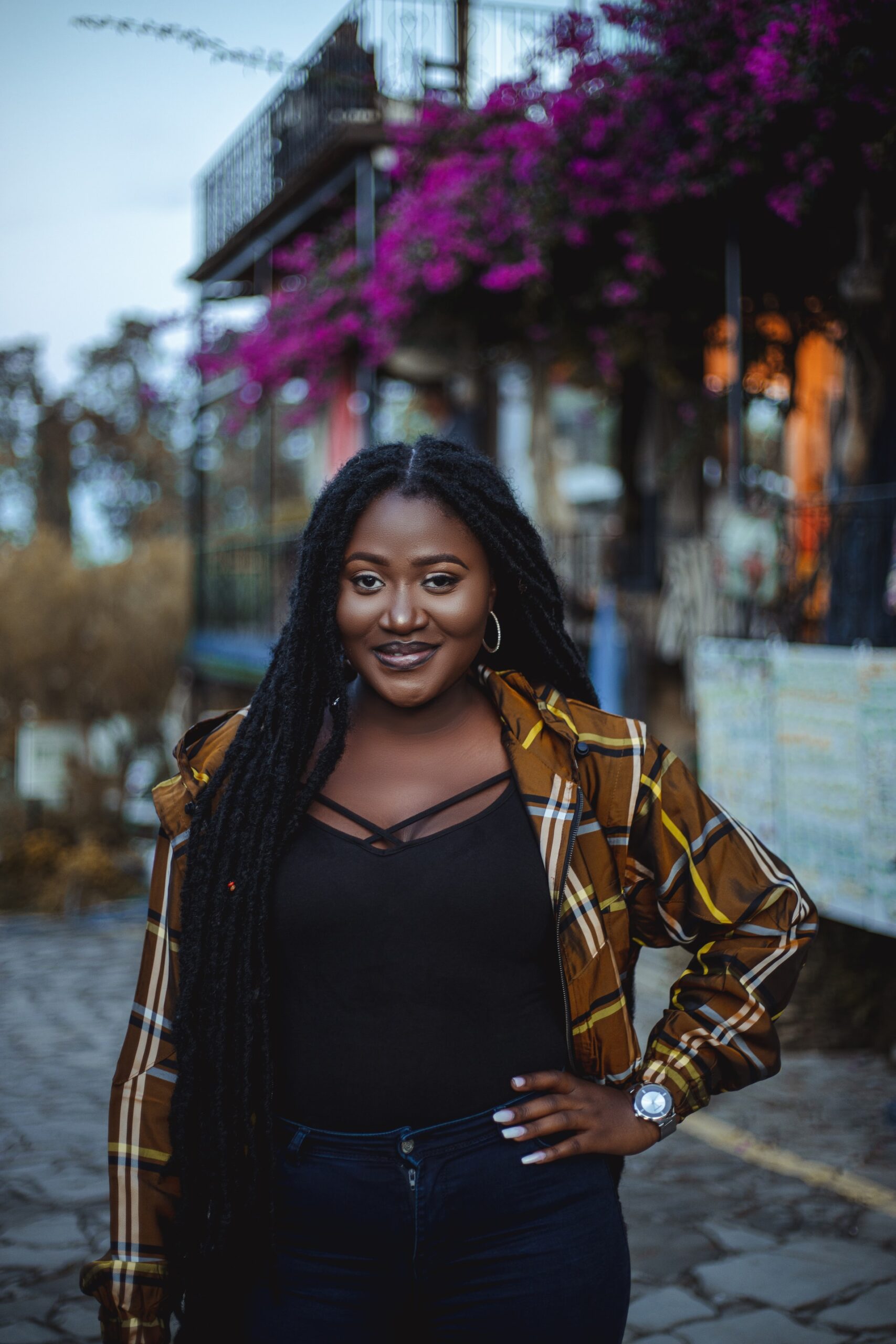Embracing African Solutions for African Problems
Africa has a history of not owning its own solutions. This is because Africa has been exploited by the international arena for decades, which meant that every economic, social and environmental challenge always had western inspired solutions. However, Africans have proved to have tailor-made solutions to their challenges using available resources and giving confidence in ownership. Malawi is common in finding or designing solutions to confront its daily challenges. Due to the multifaceted problems that the country encounters, the high cost of living, the fuel crisis, the skyrocketing unemployment rate etc., Kabaza (Bicycle) have become the most effective and efficient means of transport in the country. The streets of Malawi are a craze of Kabaza drivers going up and down looking for customers/passengers.
The encouraging part of this business is that most Kabaza owners are young adults, which has eased the burden of unemployment and reduced crime. The Kabaza is easily accessible in any part of the country and therefore functions informally like an uber as one can get a Kabaza from anywhere, even as close as getting one by the doorstep. In terms of job creation, it is a value concept. It only requires a few resources or capital. Anyone can start the trade as long as they have a bicycle. The Kabaza business is meeting a critical need in Malawi by offering the most flexible and affordable means of transport. Undoubtedly, it brings socio-economic groups out of poverty and empowers the youth to be self-reliant. Therefore, the business is an easy start-up since most homes, on average own a bicycle. In addition, it is an effective way of enhancing economic and entrepreneurial growth. The business also contributes to empowering local communities to help them survive economically, socially and physically.
The Kabaza story began in Karonga, in early 2005, a district located in the Northern Region of Malawi under a business called Cargo. This small trade became very lucrative in Karonga, attracting many unemployed youths and young adults. In no time, they became Cargo business owners with an enviable income, sustaining their families and day-to-day living costs. Subsequently, the business became overcrowded, resulting in the spread of the industry in other parts of Malawi. This overwhelmingly fast-paced spread eventually led to urbanisation, unemployment and adequate, affordable intra-city public and commercial transport. As a result, the Kabaza business became an attractive venture and captivated a few established businessmen, the likes of Mr Salumpha based in Mzuzu. He was the first to buy about 5 000 Kabaza, employing 5 000 youths at the time, which attracted the government's attention in recognising and appreciating his job creation efforts.
This trade in a developing country has various advantages: availability and affordability. They can also easily traverse through narrow roads and rough terrain and easily navigate the most jammed roads. They quickly reach remote areas and meander through the hectic urban traffic, meeting some urban residents' unmet transport needs. This type of transportation has quickly become popular not only in Malawi but also in other countries. Its acceptance has increased steadily and has become the primary mode of transportation in Malawi and Africa. It has become a means of transportation regularly used by people of all ages, men and women alike, mainly middle to lower-income earners.
Unfortunately, not all Malawians embrace this means of transport as it is associated with the less privileged. One pointed out and said, "the problem with Africans is that we want to jump stages of economic and industrial growth, instead of wishing to be developed in one day, it is good to start with what we have. I see uber eats in Kenya being delivered on small motorbikes, and people get food on time without worrying about traffic jams. In New York deliveries are even done on skateboards" Another said, "it is environmentally friendly as there are no carbon emissions."
Indeed, it is time we embrace African solutions to African problems towards a united, prosperous, peaceful Africa. To build the Africa we want to see and live in, we need to unlearn certain imported principles irrelevant to our existence and embrace our authenticity and being. As Africans, we need to navigate our resources and bank on Africa's future, having a sense of self-reliance, responsibility, pride and ownership. We need to re-brand Africa and leave the image of a permanently troubled land behind or totally erase it.
In conclusion, Malawi is a beautiful country with a vibrant populous of inventors and solutions-minded youths. If we could all embrace and support them, we could build a better Malawi and a great Africa.
Story by:
Cathrine Banda, from Mzuzu Malawi. She is a Community Activist, Motivational Speaker, Writer, Poet, Former Radio Presenter The 1873 FM, Johannesburg South Africa
cathrinetwabi@gmail.com
Siphiwe Sithole tells us about the idea that transformed her life
That I would become a farmer was just not on the radar. I did not see this coming. I trained as a journalist at Rhodes university and went on to do a postgraduate diploma in advertising and marketing. After that, I worked in different marketing and public relations positions for corporations and organisations.
In 2015, The Tony Elumelu Foundation accepted me to participate in their Entrepreneurship programme. I had an idea to grow food for African ex-pats living in South Africa. I understood that most people migrating are at the bottom of the pyramid. They are moving from one country to another for economic reasons. When they get into that country, they have to scramble for food. They don't have money to buy groceries for the whole month. They're literally looking for food on a daily basis. They are looking for fruit and vegetables they cannot get.
I come from Mpumalanga, close to the Mozambican border. When I lived in Cape Town I couldn't find things like cassava. Each time I would go to the neighbourhood market, I just could not find the stuff that I could relate to. The demographics of the country have changed. The demographics of certain regions have changed and yet what has not changed is what you are finding on our shelves.
African Marmalade is an African farming business that grows indigenous crops. We started it in late 2015 with the intention of growing food. When I went into business, I thought that, as a top performer in the corporate world, I would be able to hit a profit in six months, but it just took longer. The reality of climate change confronted me; I just did not have the way or reserves to deal with that as a farmer. Being self-funded was pretty tough. I was very cautious. I did not want to make loans to run the business. I had to drastically lower my standard of living. I could no longer maintain the same lifestyle that I had while I was working. 
Sometimes I struggle to even imagine my life before me going into farming. I keep saying, guys, 'What did I use to do? What was I doing on weekends? Because right now I'm happiest when I'm out in the field while before, you know, I would've been, oh, I've gotta go to the mall. I've gotta go to the salon.
Growing indigenous foods, I looked like a lunatic because I was doing something people didn't know. Whatever I planted, people came from the agricultural department, and they wouldn't understand why I didn't have rows and rows of the same vegetable, like spinach, cauliflower or zucchini. I was on less than 2 hectares, and there were more than 30 crops. That, to them, did not make sense. And I told them that you guys don't understand that before I can grow those things on a larger scale, I need to have the seed. And I cannot get the seed. If I need seeds, I would have to travel to different African countries. Or I have to apply for all sorts of import permits. So if I land my hands on a couple of seeds, I have got to grow those seeds for two or three seasons up until I've got enough to grow a hectare.We have our own seed bank that is quite extensive. We produce seeds for ourselves plus for other farmers and households. We are like a network; we keep a record of who we sell to and link people living in the same area as the seeds would have adapted to the environment.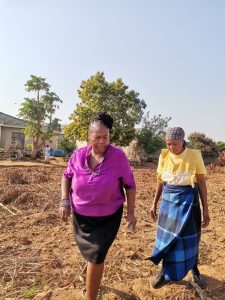
Many people are waking up to indigenous foods, and we've seen many chefs within the culinary spaces that are embracing indigenous ingredients. When people have tasted the foods they've eaten in a lovely restaurant, it encourages them to ask, where do I buy this?
The challenge we have in South Africa, and I don't know how prevalent this is in other African countries: but if people grew up poor eating indigenous foods, they associate them with poverty. So, when you've got a job or a business, you are not going to be eating those foods; you are going to be eating your creamed spinach and brussel sprouts. And not foods that remind you of a time when you didn't have options. When people say,' I have bad memories of these foods, plus I ate too much while I was growing up.' My question is, 'So, do the Chinese ever get tired of eating fried rice and noodles? If they don't, why are you getting tired of eating your own food? The Italians never get tired of eating pasta, but they've been eating it from infancy. You go to India, people are eating Indian food.
We are eating things that don't have nutritional value or very little nutrients, and we are missing out on a lot of the nutrient-dense stuff that is good for us, that our DNA actually can process. A lot of people find that they are gluten intolerant. But they're not even aware, and they're busy eating bread made of wheat. And yet there are things like your cassava flour bread that they could be using and teff flour, that's gonna be gluten-free. There is less resistance and a quicker uptake once people know what some of these food items are good for. And it's part of us depoliticising the food because in South Africa, having lived deep under apartheid with people being segregated and living according to their different ethnic groups, people would say no to foods that other ethnic groups would eat. Once people know the health benefits, people are willing to embrace the foods. 
The introduction of malls in a lot of areas has made people think that their food can only come from a mall. They are being seen as a one-stop shop for everything. The pension sales points, where people receiving government grants would go once a month to receive their pension, were kind of neighbourhood markets. People would set up with an umbrella, which is not happening now with the automation of the system. We don't see those outlets where people can go out and buy. The sad thing is that neighbourhood markets are in the affluent areas not in the townships or settlements. What you are going to find are plaza shops that are not big on fresh food.
I would like to see more neighbourhood markets developing in different areas. I would like to see more people growing their own food. Literally, people being able to feed themselves and sell the excess to their neighbours and for us to broaden the basket of what we are eating.
I think we must eat our medicine. If you do not eat your medicine, if your food is not healing you, if your food is not nourishing, you are gonna spend the rest of your life on supplements. And if you are eating two or three meals a day, and yet you've got this medicine cupboard or your handbag full of medication, then there's something wrong with what you are eating. So change your diet and look at making it more indigenous. All the lifestyle diseases we have result from what we eat. You look at child obesity rates, auto-immune diseases, the increase in autistic cases and ADHD and all the other ailments people have. All of those things, you can actually trace them back to what people are eating. 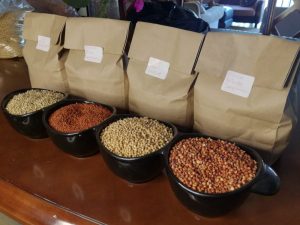
What drives me is getting people to connect and rekindle some of their childhood memories. When they walk through our fields and see what we are growing, it reminds them of their great grandmothers, their grandmothers, and their childhood growing up in whatever part of the country or the continent. When you see that spark, when somebody's face lights up and says,' Oh yeah, I know those beans. I don't even remember the last day I ate them. 'or 'Oh no. My Granny used to..., or when somebody says, you know what, the last time I ate this was when my mom was still alive.’ That just makes me so happy. To be able to say, I am really getting somebody to be in charge of their true self, with their emotions, because we have become a society where we are kind of burying our memories and just being on autopilot.
Personally, I've been able to reconnect. I've been able to get certain smells that remind me of something that happened while I was below the age of 10. It's just been that journey where I remember who I am and what I've missed or what I've lost and what I'm actually now recovering. I wouldn't trade my life for anything right now. I keep on saying, I think I had the perfect midlife crisis. and it sent me into farming.
The African woman whose legacy has changed my life: Wangari Maathai
This is the story of the African woman who made me love the environment. Her story inspired me to pursue a career in environmental and climate justice, and it also inspired me to pursue my dreams, irrespective of the societal limitations placed on my skin colour and gender.
Wangari was born in Kenya on April 1st, 1940, during British colonial rule. Her family was of Kikuyu origin, and her father was polygamous. As a child, Wangari, was given a small plot of land to grow her own food and to learn how to cultivate the land. She completed her primary and secondary education in Kenya. In 1960, she received a scholarship to commence her university studies in the United States of America, where she received a Bachelor's and a Master's degree in Biological Sciences. In April 1966, after returning to Kenya, Wangari met her future husband, Mwangi Mathai, a politician. The two got married in May 1969.
From 1966 to 1982, Wangari Maathai was a lecturer at the University of Nairobi, and in 1971, Wangari received her Doctorate in Veterinary Anatomy from the University of Nairobi, becoming the first woman in eastern Africa to receive a PhD.
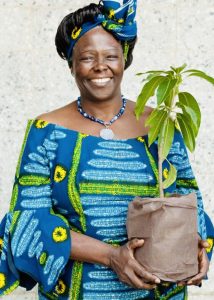 In 1977, Wangari and her husband got divorced. Soon after that, Wangari was imprisoned because she publically contested the judge's ruling regarding her divorce. As this ruling was in favour of her ex-husband and it shamed her for being a woman in need of a divorce. As a result, the judge ordered her to stop using her former husband's last name. In defiance of the judge, she changed the spelling of her last name, adding an "a" and becoming Wangari Maathai. That same year, she founded the Green Belt Movement. This grassroots environmental non-governmental organization planted over 30 million trees across Kenya over the next three decades. This movement became a successful platform for women's empowerment (especially for rural women in Kenya). As a result, she became known as Africa's Mother of Trees.
In 1977, Wangari and her husband got divorced. Soon after that, Wangari was imprisoned because she publically contested the judge's ruling regarding her divorce. As this ruling was in favour of her ex-husband and it shamed her for being a woman in need of a divorce. As a result, the judge ordered her to stop using her former husband's last name. In defiance of the judge, she changed the spelling of her last name, adding an "a" and becoming Wangari Maathai. That same year, she founded the Green Belt Movement. This grassroots environmental non-governmental organization planted over 30 million trees across Kenya over the next three decades. This movement became a successful platform for women's empowerment (especially for rural women in Kenya). As a result, she became known as Africa's Mother of Trees.
Wangari was imprisoned several times in the 1980s for criticizing Kenyan President Daniel Arap Moi and for demanding multi-party elections in Kenya. She stood for environmental justice due to new construction developments that endangered the environment and indigenous peoples' rights. Furthermore, in 1992, Maathai ran for president on a platform urging environmental protections. And at that time, she was the first African politician to embrace that cause publicly. She withdrew from the elections but ran again in 1997. In 2003, she founded the Mazingira Green Party of Kenya and later that year, she was appointed Assistant Minister for Environmental and Natural Resources by Kenyan President Mwai Kibaki. 
In 2004, Maathai won the Nobel Prize for her work in protecting the environment through political lobbying and reforestation initiatives. These initiatives were aimed at empowering rural women in Kenya. This was an outstanding award as it's prestige helped put environmental rights on the map.
In 2006, she was one of the founders of the Nobel Women's Initiative, an organization of six women recipients of the Nobel Prize, representing North and South America, Europe, the Middle East, and Africa, who united in their efforts to work for peace, justice, and equality throughout the world. In January 2007, Maathai hosted the Global Young Greens conference in Nairobi, which some have described as a meeting of the next wave of the leadership of the world environmental movement. In addition, Maathai wrote four books, including "The Greenbelt Movement: Sharing the Approach and the Experience".
At 71, Wangari Maathai died from complications from ovarian cancer treatment at a Nairobi hospital.
But her legacy lives on!
Today millions of women like myself have gained inspiration from her story and aim to share this story with many people. Her passion, resilience and approach to environmental rights and gender equality contributed significantly to my career path. I am forever grateful!
Source for refernace:
The founder of the Green Belt Movement and the 2004 Nobel Peace Prize Laureate
Photo 1 and photo 2 credit: Pinterest
Mpho Mogodiri is Celebrating our Indigenous Heritage
We really need to reconnect with our roots to nature and listen to the elders around the world. I call them living libraries because they actually know most of the things that we don’t know. They have this knowledge, but they don’t know who to share this knowledge with. It’s because we are not asking them about these things. It’s something that I’m trying to spark with my business. To say, ask your grandmother about this, ask your grandfather about this, ask your elder about this and let there be a bit of information sharing. My grandmother would share her stories around fruits. For example, the wild sour plum. Those are the things she would talk about. I feel that knowledge like hers should be preserved somehow. 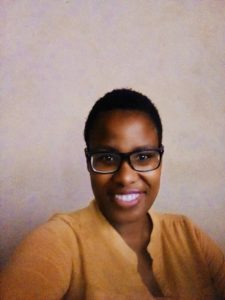
People don’t go into the wild as much as they used to. There’s a lot of activities to do now. There’s a TV in every home. There’s PlayStations, there’s Twitter, Facebook and so on. For us, when we wanted to play, we would go foraging and people are no longer interested in foraging. And if people are not interested in something, it loses its value.
I got introduced to foraging by my grandmother. I grew up in the Northwest, in a village called Seolong. We would go foraging with my grandmother and also with friends. It was actually fun to do it. I think it was a great, formative period. It’s a part of who I am. It’s a part of my identity and culture. I believe right now we are losing this knowledge which forms a great part of who we are.
The impact that starting my business had on me is that I really had to connect with my childhood again. Not only that but it’s also taught me that challenges in life are seasonal like the items we would forage. I appreciate nature more. I get to impact other people’s lives because when I go foraging, now, I go with a group of young people. They teach me about these fruits because some of them have been doing this their whole lives. Now they are paid for that knowledge and skill and they get to be paid through me. I get to put food on somebody’s table. It has impacted me that I’m doing good. I’m sharing my gift with other people. I’ve learnt to really listen to the ingredients and just go with the flow. It has shown me a different Mpho. 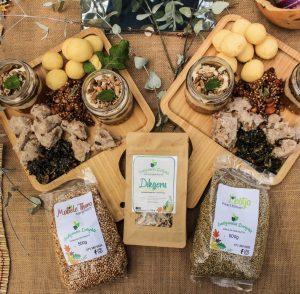
At Indigenous Delights, we produce luxury food, such as jams and chutneys, made out of indigenous, raw products. We exclusively source our raw material from women and youth in the villages in the Limpopo province. We do this to ensure that we provide a way of earning income for women and youth, and also to ensure that the materials we get are indigenous to that area and are collected sustainably.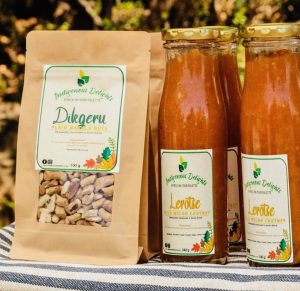
I wanted to make something that I grew up loving, indigenous delights, into modern food. There’s a certain stigma that comes with some indigenous fruits that I grew up eating. I ate that a lot when I was young because we had nothing else to eat. So, some of the foods are seen as poverty foods. We’re trying to break through that stigma.
Evolving to me means growth. It means pushing boundaries. Knowing that fear is there, but saying to the fear, 'I acknowledge you, fear, but I'm not gonna let you paralyze me'. Evolving means chasing your dreams the only way you know how. Evolving is also growth in terms of knowing yourself and making things happen for yourself and for those that are around you. It’s about opening the door for those who come after you.

